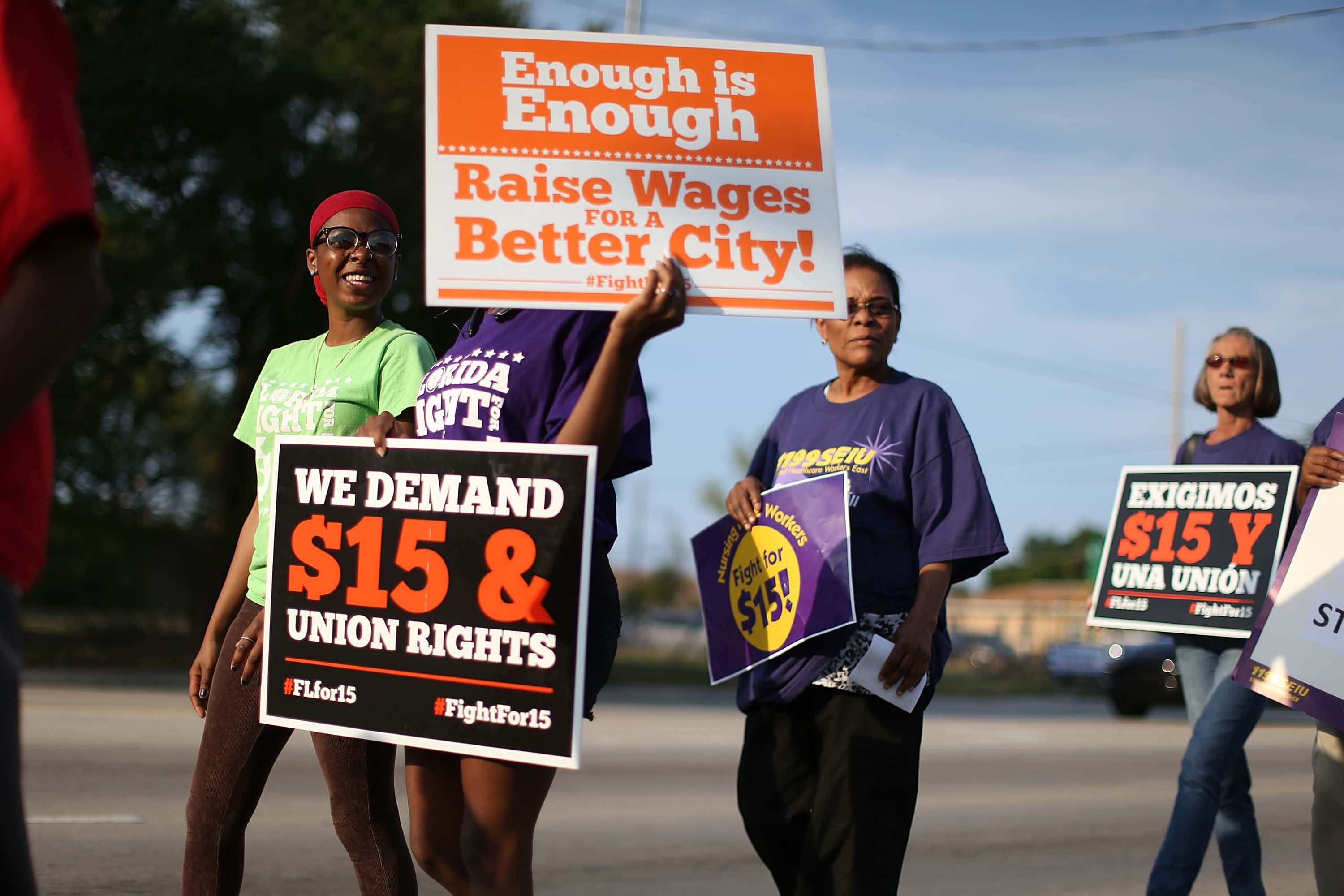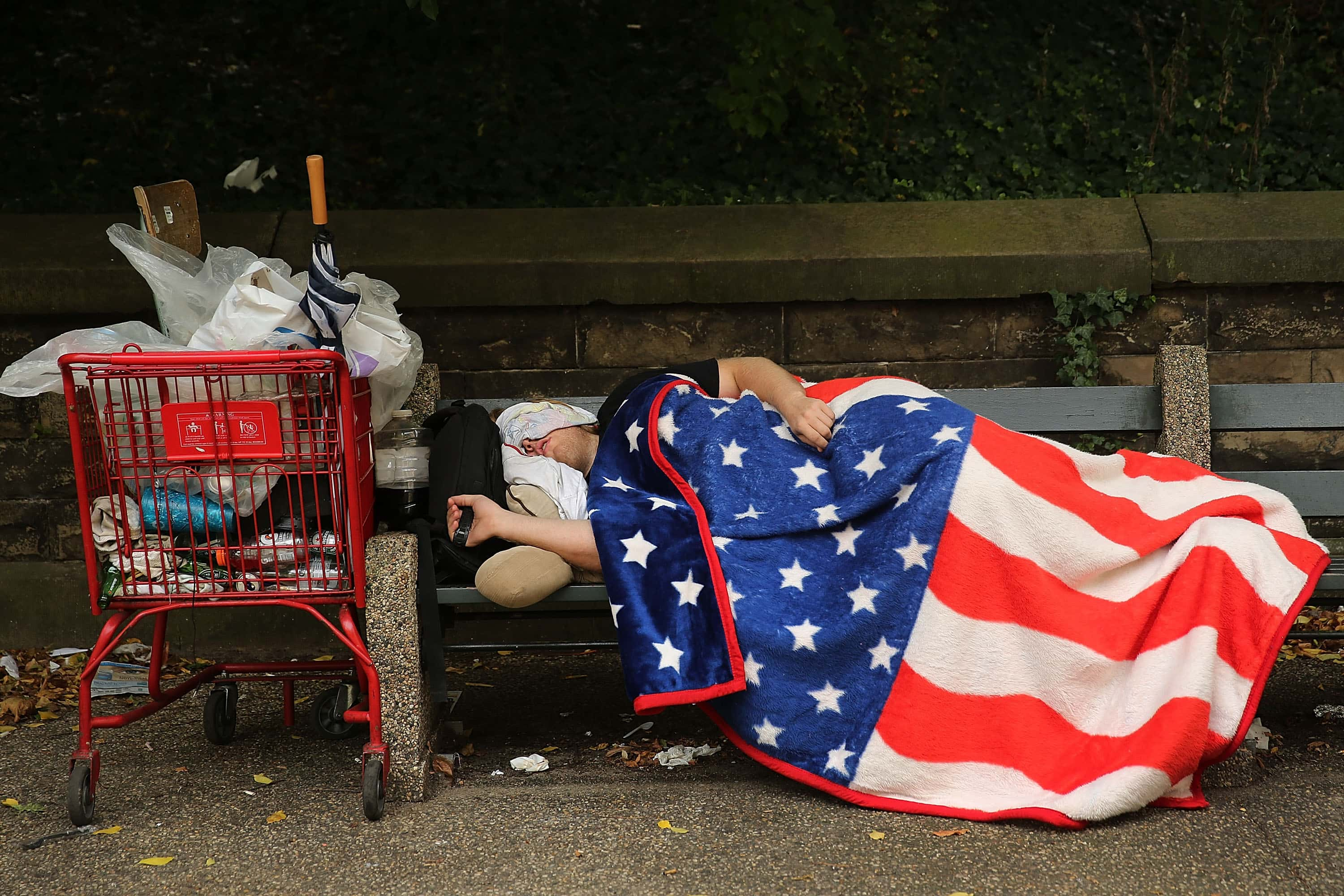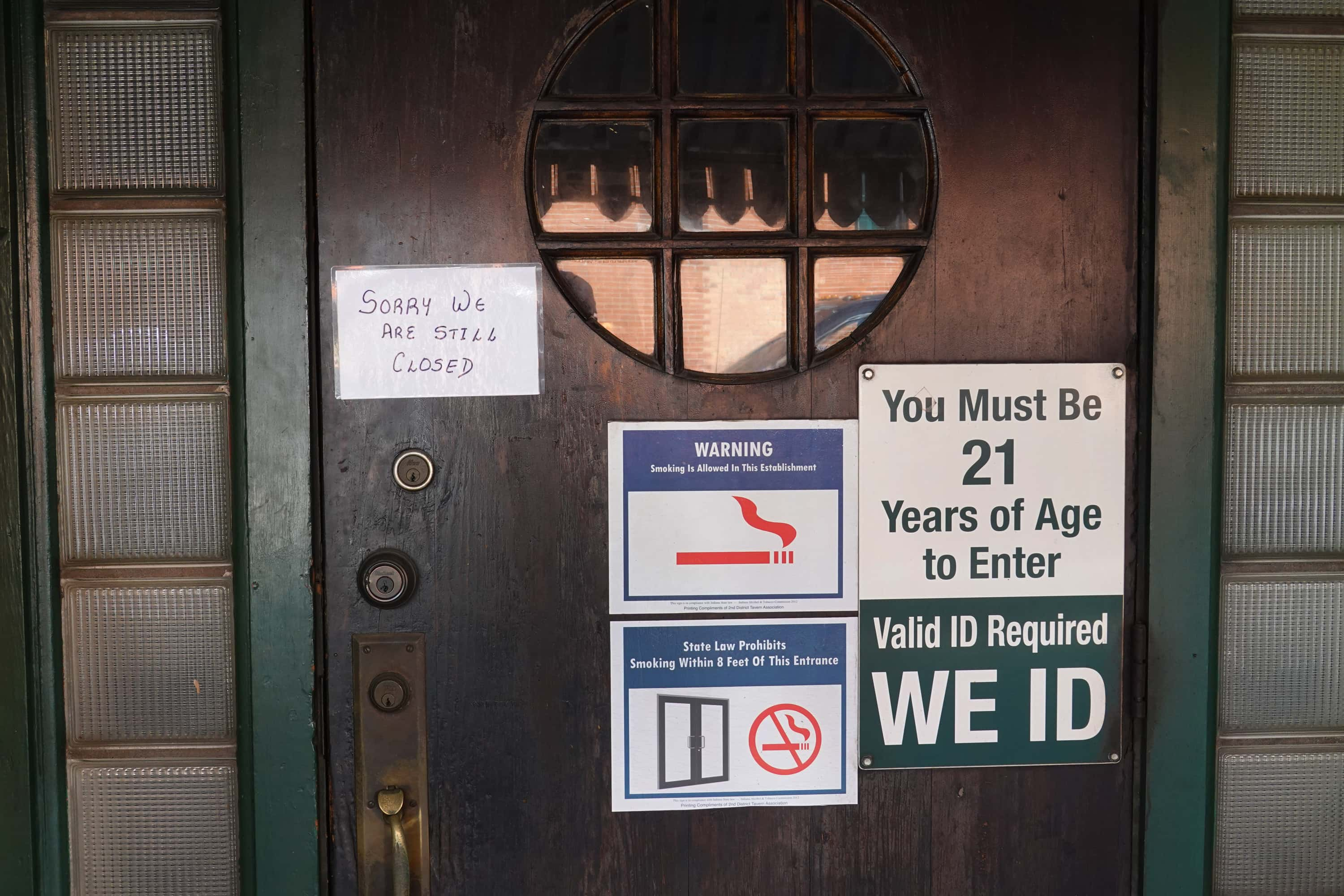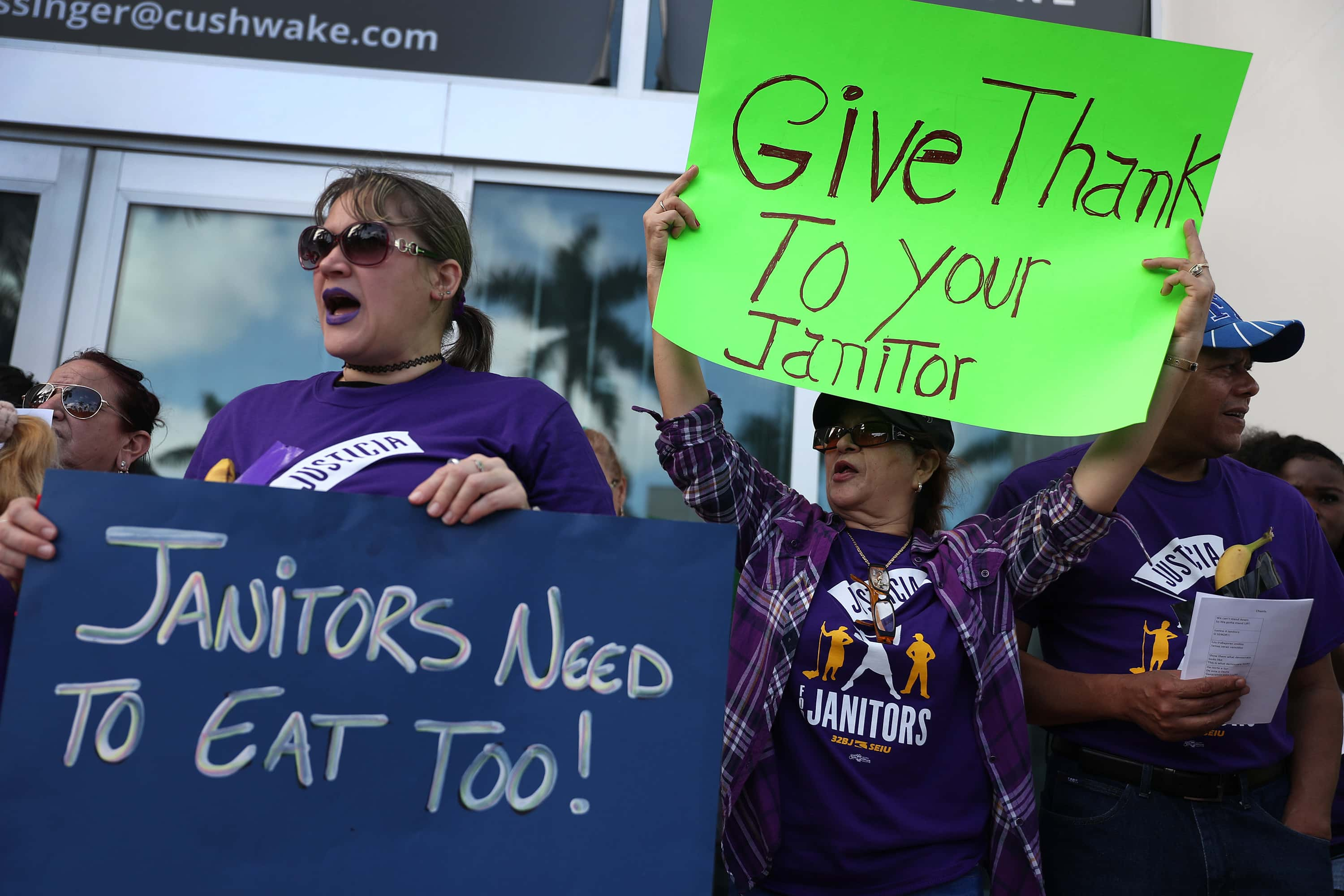Is $15 minimum wage a good idea? A look at plan's obstacles as Dems claim it could lift millions from poverty

The Democrats are currently engaged in a massive campaign to increase the federal minimum wage to $15 an hour. A bill was added to the Covid-19 relief bill but failed to pass after being struck down in the Senate. Now, Senator Bernie Sanders is toying with several other ideas on how to pass the bill, a key issue for the party. While many have rallied behind the bill, there are plenty of others opposed to it.
At the head of the opposition is the Republican Party, who argue that the bill would cause more harm than good. The party is united in its opposition, saying that small businesses would unfairly be hurt by raising the minimum wages. While that does sound like a good argument, the reality though is a lot more complex.
RELATED ARTICLES
The practicality of a $15 minimum wage is not so straightforward as both parties make it. Can it really help lift millions out of poverty? It is possible, but it will require looking beyond the minimum wage. That's the challenge the Democrats are yet to address and until they do even a $15 minimum wage may seem insufficient.

Why the minimum wage is so problematic
The current federal minimum wage is $7.25 per hour. Currently, many states also have their own minimum wage laws. According to the Department of Labour (DoL), " In cases where an employee is subject to both the state and federal minimum wage laws, the employee is entitled to the higher of the two minimum wages." Currently, many states exceed the federal wage, with states like California mandating up to $13 an hour. Others like Alabama and Tennessee don't have any minimum wage requirements.
The current federal minimum wage was instituted in 2009. Almost all Americans agree that $7.25 per hour is just too little. A 2019 Pew Research found that 67% of Americans support raising the federal minimum wage to $15 an hour. While it has less support among the Republicans, the idea is still popular nationally. That's because many Americans are currently suffering, living in poverty even though they work full-time jobs. Investopedia found that people earning at the minimum wage earn "just $15,080 (if they work 40 hours, each of the 52 weeks in a year), placing them well below the $17,420 poverty line in 2021 for families of two."
It's not a small issue. According to the Bureau of Labour Statistics (BLS), "In 2019, 82.3 million workers age 16 and older in the United States were paid at hourly rates, representing 58.1 percent of all wage and salary workers." The bureau also found that 1.9% (or 1.6 million Americans) earned exactly at or below the minimum wage.
Even those who earn above the minimum wage aren't able to make ends meet. People can't afford rent, healthcare and education. The issue is further complicated by the long hours, shift-based jobs and the new issue of gig workers. Many companies also don't pay overtime, or time spent on things like bag checks. There's also the issue of inflation - the current minimum wage has 17% less purchasing power than it did 10 years ago.
So it makes sense to raise the wage right? Not really. That's because while the minimum wage does put more money into workers' pockets, it might not put enough. If the Democrats want to lift millions out of poverty and give them a better life, they have to look at the living wage.

Living wage vs minimum wage
The minimum wage is just the basic standard amount an employee is entitled to. It does not take into account context - the cost of living, inflation, access to goods and services and the cost of utilities. The minimum wage isn't a great indicator of poverty because it doesn't take into account the fact that poverty means different things in different places. What you get for $15,000 in New York City vs rural Montana are very different. Just take a look at the cost of rents, there's a reason people choose to live away from city centers. The reality is that how much you need to survive is very dependent on a variety of factors, hence the idea of a living wage.
A living wage is an amount a person or family needs to live in the place they are in. That means to live above the poverty level. The Department of Health and Human Services found that in 2020, the federal poverty level was $26,200 for a family of four. That means both parents in the family will have to work full-time minimum wage jobs just to make ends meet. Because it is so subjective, it is harder to implement mandates on living wages than it is on minimum wages. But that doesn't mean the idea should be ignored entirely.
Without factoring in living wage, simply increasing the minimum wage does little to help millions already in poverty. For someone earning $7.25 now, earning $15 an hour makes little sense if they still can't afford rent or healthcare. One way to understand how subjective living wages are is to look at MIT's Living Wage Calculator. It's the most comprehensive study of what it costs to live all over the US for the basics - rent, food, healthcare, transport, childcare and taxes.
However, it is important to note that increasing the minimum wage does help. The Congressional Budget Office (CBO) found that increasing the minimum wage to $15 an hour would help 0.9 million Americans come out of poverty. It's not a very large number, and many argue that it will be offset by greater job losses. But there is data pointing to the fact that it has wider benefits.

Wage rises and small businesses
Republicans and many conservative think tanks argue that small businesses would be worse off by an increase in the minimum wage. They argue that increasing the wage would force businesses to layoff more employees. There is some data to back that theory up. The Employment Policies Institute found that "a 10 percent increase in the minimum wage is associated with a 0.9 to 1.1 percent decline in retail employment and a 0.8 to 1.2 percent reduction in small business employment." The CBO report also noted that increasing the minimum wage would see employment reduced "by 1.4 million workers".
Small businesses don't have the deep pockets or income levels to offset additional costs. Many large enterprises like Amazon, McDonalds and others will be able to adjust to the increase, but small businesses won't. A CNBC survey found that "one third of small business owners say they’ll likely lay off workers if Congress raises the federal minimum wage to $15 an hour."
Given that many have been forced to furlough employees or shut down entirely because of the pandemic, conservatives do have a point. Right now, raising the minimum wage won't provide businesses with the support they need to get back on their feet. So why then are Democrats keen to push the increase? That could be because the increase would benefit families and especially women the most.
Who benefits?
Proponents for the increase argue that the downsides would be offset by two factors - greater consumer spending and better wages for women. Business for a Fair Minimum Wage, a national network published a letter in February detailing the benefits of an increased minimum wage. According to them, "minimum wage increases put money in the pockets of people who most need to spend it - boosting sales at local businesses."
The Economic Policy Institute also found that raising the wage would benefit workers of color, who are disproportionately affected by lower wages. 23% of those who would benefit would be black or Latina women, the institute found. 31% of African-Americans would also greatly benefit, as would 59% of women. The study shows that increasing the wage would put money in the pockets of those that needed it the most - minorities who for long have been gentrified, forced to live in low-income neighborhoods with little access to basic resources.
Raising the wage gives them a better shot at a better life. It allows them to access the basics without having to depend on social security, and in turn, spend on the local economy. Raising the wage has a cyclic effect that can help boost local businesses but over the long term. In the short term, it is likely to do more harm than good.
The truth is, there's no simple way to look at the issue. Rising the minimum wage does come with many challenges, and it doesn't always help offset the issue of livability and affordability, but that doesn't mean it shouldn't be done. Increasing the wage will have a tangible and immediate impact on societies, who for a very long time have been ignored by America's politicians. So will it come to pass?

Wage hike unlikely to pass
Democrats are currently in a standoff with Republicans over the Raise the Wage Act 2021. The bill passed the House but is now stuck in the Senate. Democrats first attempted to pass the bill through the $1.9 trillion America Rescue Plan but failed to do so. The plan ran afoul of the Senate's rules, according to Senate Parliamentarian Elizabeth MacDonough. So what now? There are a couple of paths forward for the bill.
The first is to call for a separate vote on the bill. With the Senate split 50-50, the Democrats will need at least 10 Republicans to come aboard, as well as conservative Democrats like Sen Joe Manchin. That seems the least likely, given the strong opposition from both Manchin and almost all Republicans. The other alternative is, as Sanders proposed is to pass the hike indirectly through tax bills. Sanders's plan is to provide tax benefits for businesses that increase the minimum wage to $15 an hour while reducing tax deductions for those that don't. It's a more long-winded process, with plenty of paperwork that would be difficult to manage.
The other alternative is more limited hikes, on certain businesses. Republican Sen. Josh Hawley has proposed the minimum wage be increased only for businesses making $1 billion or more. That bill, while not as expansive as the Democrats want, could be easier to push given it has some Republican backing. Then again, the nation needs 60 Senators to agree on a way forward, which looks increasingly difficult. For now, it looks like it is up to the states to push for a hike in the minimum wage.
Sources
Bureau of Labour Statistics, Congressional Budget Office, Economics Policy Institute, Employment Policies Institute, Investopedia, US Department of Health and Human Services, US Department of Labour










